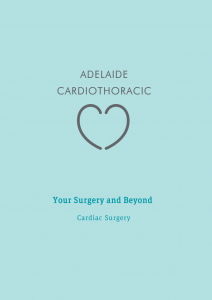If you are from country SA or interstate, you and your family or escort(s) will need to have accommodation reasonably close to the hospital where you are having surgery. You will need to stay in Adelaide (within an hour or so of a major hospital) for a total of 10-14 days after your surgery, including the time you spend in hospital, before you will be able to be cleared to return home. This is to minimise the chance of a complication occurring after you have left Adelaide, when you may be some distance from help.
Staying with family and friends is fine, or you may choose to stay in paid accommodation such as a hotel or holiday park. You will need to arrange and pay for your own accommodation while you are in Adelaide, as accommodation is not provided by the hospital. You may be able to receive some financial assistance to cover the costs of your travel and accommodation (see below).
Prior to leaving Adelaide, you will need to be reviewed by your surgeon to ensure you are ready to return home. For private hospital patients, this review will occur at our Ashford rooms; for public hospital patients, this appointment will be at Flinders Medical Centre in the outpatients department.
For country South Australian patients, you may be eligible for a subsidy towards your travel and accommodation through the Patient Assistance Transport Scheme (PATS) if you are a permanent resident of South Australia and live more than 100 kilometres from the hospital. Please ask your local doctor, call your local PATS office, or check online at www.countryhealthsa.sa.gov.au/pats for further information.
For Northern Territory patients, you may be eligible for financial assistance from PATS if you have to travel more than 200 kilometres one way to an approved specialist medical service, are eligible for Medicare and are an Australian citizen or permanent resident and have been living in the Northern Territory for six months or more. Please ask your local doctor, call your local PATS office, or check online at: www.nt.gov.au/wellbeing/health-subsidies-support-and-home-visits/patient-assistance-travel-scheme for further information.

